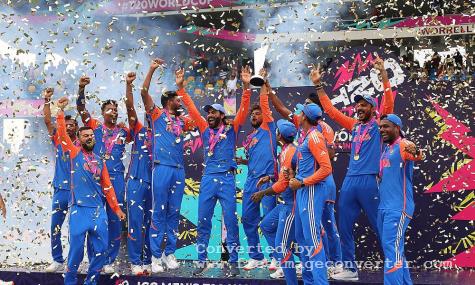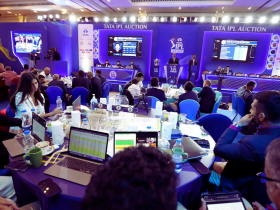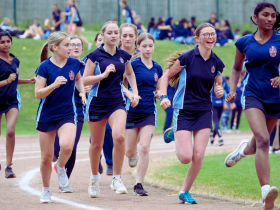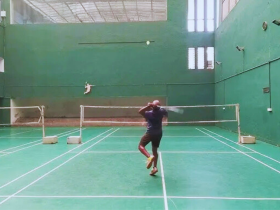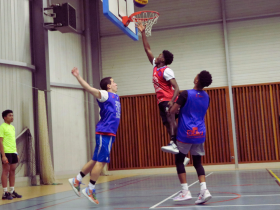The concept of National Sports Day in India traces its origins to 29th August 2012, when the Government of India officially declared this day as a national event to honor the legendary hockey player, Major Dhyan Chand. However, the actual first celebration of National Sports Day was much earlier, but it wasn’t until 2012 that it was formally recognized on a national level. This date, coinciding with Dhyan Chand’s birthday, was chosen to inspire the nation to embrace sports and physical activities for a healthier lifestyle when was national sports day first celebrated in india.
Who Was Major Dhyan Chand?
Before delving deeper into when National Sports Day was first celebrated in India, it’s crucial to understand the significance of Major Dhyan Chand. Born on August 29, 1905, in Allahabad, Dhyan Chand is widely regarded as one of the greatest field hockey players of all time. Known for his incredible skills and mastery of the game, he led India to several Olympic gold medals in 1928, 1932, and 1936, making him a national hero. His contribution to sports was immense, and his legacy continues to inspire generations of athletes across India and the world.
The Evolution of National Sports Day in India
National Sports Day, though only officially recognized in 2012, has its roots in the tradition of celebrating sports and physical fitness in India. Before the formal establishment of this day, sporting events were held across the country, especially in schools, colleges, and various sports organizations. It was only in 2012 that the day was formally dedicated to Dhyan Chand, with national-level events taking place every year in his honor.
The first National Sports Day celebration in India involved several activities aimed at promoting the importance of physical fitness and sportsmanship, culminating in the award ceremony for the prestigious Rajiv Gandhi Khel Ratna and Arjuna Awards.
The Significance of August 29 for Sports in India
The choice of August 29th as National Sports Day holds deep historical significance in India. Major Dhyan Chand’s contribution to the sport of hockey and his unparalleled success in Olympic games were milestones in India’s sporting history. The day not only acknowledges his legacy but also serves as a reminder of the importance of sports in shaping a nation’s identity and fostering unity.
How National Sports Day is Celebrated
National Sports Day celebrations in India are marked by various activities ranging from inter-school competitions to national-level events. The President of India presides over the main event, held at the Rashtrapati Bhavan in New Delhi. On this day, the President honors outstanding athletes with the highest sporting awards, such as the Rajiv Gandhi Khel Ratna, Arjuna Awards, and Dronacharya Awards. The events culminate in the ceremonial lighting of the flame of sportsmanship.
Why is National Sports Day important?
The importance of National Sports Day in India cannot be overstated. This day not only commemorates the legacy of Major Dhyan Chand but also promotes physical fitness and sports among Indians. By setting aside a day for sports, the country emphasizes the need for a healthy lifestyle, encouraging citizens, especially youth, to engage in physical activities. The observance of National Sports Day also encourages schools, universities, and institutions to foster sports culture and create future athletes.
National Sports Day and Its Impact on Youth
One of the core goals of National Sports Day is to inspire the younger generation to take up sports and physical activities seriously. The celebration aims to shift the focus from just academic success to a more holistic approach that includes physical well-being. Schools across India organize activities such as sprint races, yoga sessions, and team sports competitions on this day to engage children and youth. It is a day to remember that sports help in building character, leadership, teamwork, and resilience.
National Sports Day and India’s Sporting Awards
On National Sports Day, the Indian government presents the most prestigious sporting honors to deserving athletes. Among these are the Rajiv Gandhi Khel Ratna award, given to the country’s most outstanding sportsperson of the year, and the Arjuna Award, which is bestowed on athletes who have excelled in various sporting disciplines. The Dronacharya Award, recognizing excellence in coaching, is also presented on this day. These awards are symbolic of India’s respect for its athletes and their contributions to the sporting world.
National Sports Day Across India: Regional Celebrations
While the main celebration of National Sports Day takes place in New Delhi, different states and regions across India hold their own events. These events range from sports competitions to health and fitness awareness campaigns. In some parts of India, marathons and cycling events are organized to raise awareness about fitness. Schools and colleges in rural areas, as well as urban centers, engage in local sporting events, showcasing talent at the grassroots level.
The Future of National Sports Day in India
The future of National Sports Day looks promising as more focus is being laid on the development of sports at the grassroots level. With increasing participation from citizens of all age groups, especially the youth, the day is expected to see greater outreach, including online campaigns to encourage sports participation. Furthermore, with a growing emphasis on building world-class sports infrastructure and sports education in India, National Sports Day is likely to play a key role in nurturing future champions.
Conclusion:
In conclusion, National Sports Day in India, first celebrated on August 29, 2012, serves as a tribute to Major Dhyan Chand and his contributions to Indian sports. The day has evolved into a nationwide celebration of physical fitness, sportsmanship, and athletic excellence. It emphasizes the importance of sports in national development and inspires youth to take part in physical activities that are crucial for their overall well-being.
